By Jennifer Boisvert, IBO Research Biologist
I dial the number I’m given. After a couple rings a soft-spoken, kind voice answers, “This is Russ.” “Hi Russ, my name is Jennifer Boisvert. I’m with the Intermountain Bird Observatory. We’ve been contracted by the World Wildlife Fund to conduct the bird surveys on your ranch for the RSVP–Ranching Systems and Viability Planning program.”
Russ and I decide when would be the best day for me to come out to survey. I tell him more about the particular work I will be doing. How I follow a survey protocol, starting my work a half hour before sunrise to five hours post-sunrise, documenting all the breeding birds I can detect visually and audibly in a 6-minute period. Repeating the protocol at the 10 designated points spread across his ranch.
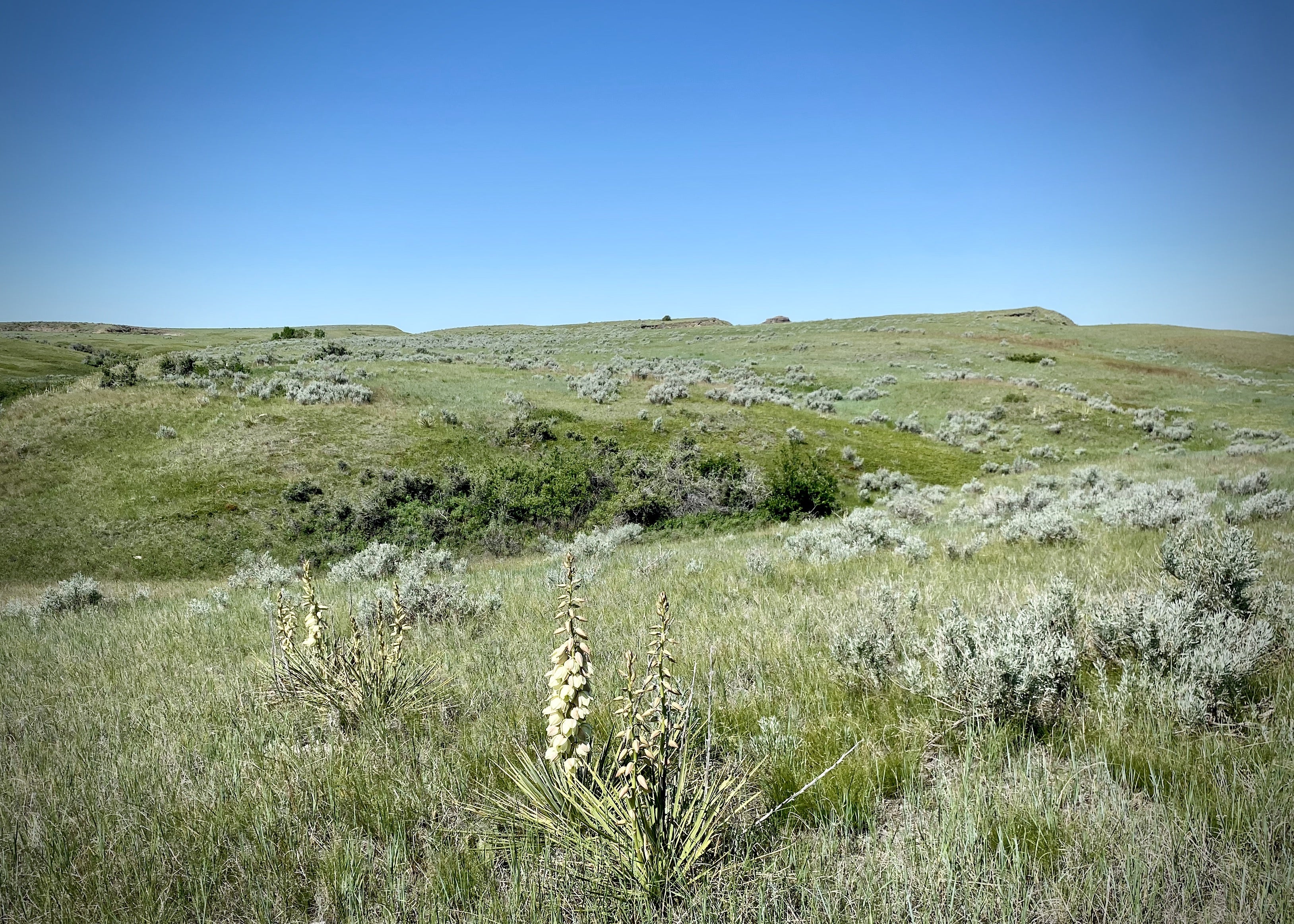
I ask him about road access, and potential places to camp amongst the sea of private lands in this area of Montana. He talks with his wife and they offer me use of their private ranch house that isn’t being used. This is not the norm in my line of work! I spend many a beautiful night camping in the back of my pickup truck, to be ready for a 5:00 am start to my day. But, Hot Dog!
A real house with a shower and a comfortable bed! It even comes with its own ranch dog! Seriously?! I’ll take it!
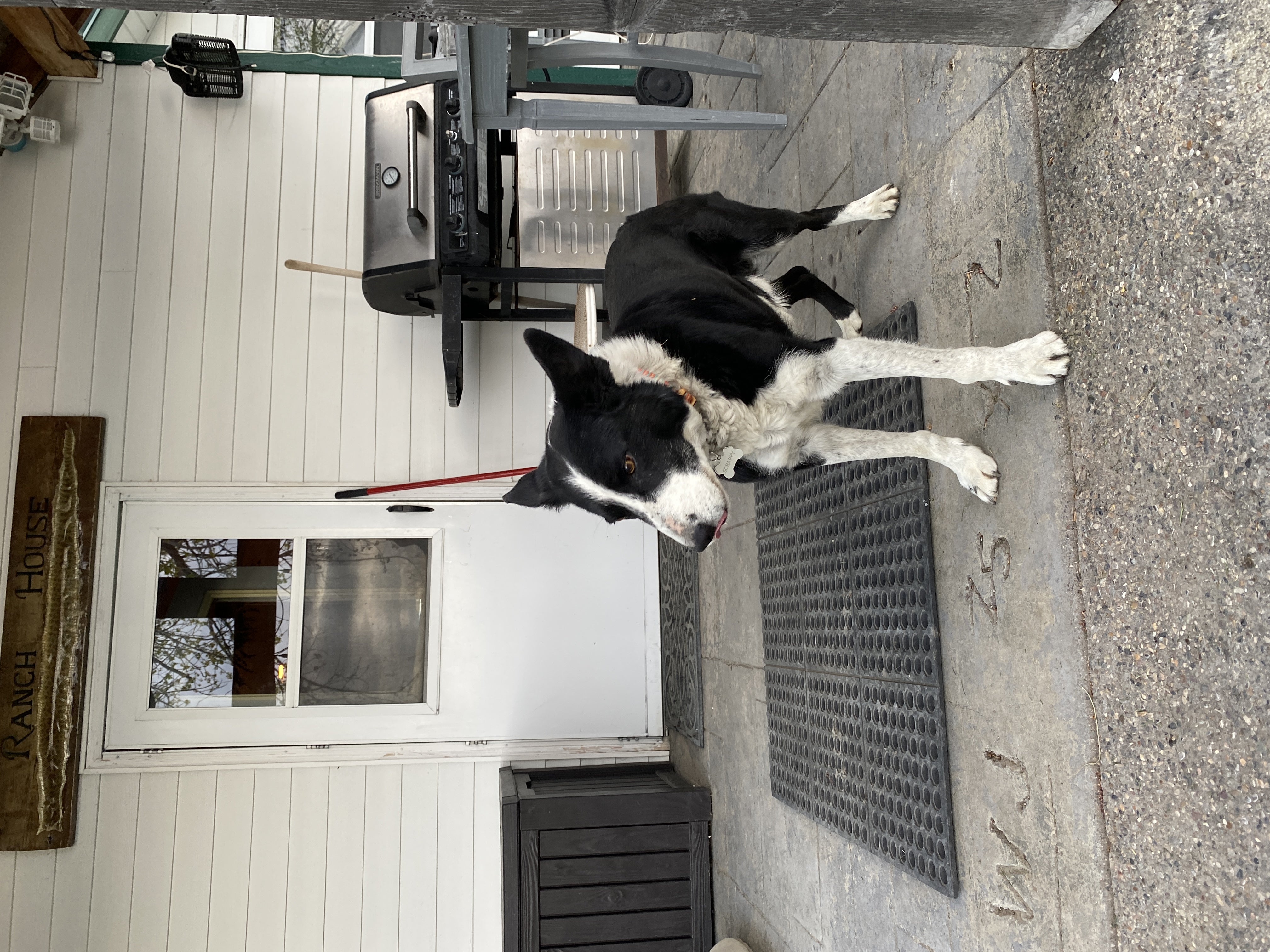
Russ wasn’t the only rancher that surprised me with his engaged interest in our work, overwhelming kindness, and genuine hospitality. There were many willing to provide whatever they could to help; be it information about roads and the land, housing for a night, a meal, use of a ranch UTV, or a tow out of a ditch. These ranchers delighted in sharing bird observations, and their perspective on why they thought it was beneficial to promote healthy grasslands across the Northern Great Plains (NGP).
They all want to do their part as good stewards of the land and they understand the trust they hold as part of the fabric of the nation’s remaining intact grasslands.
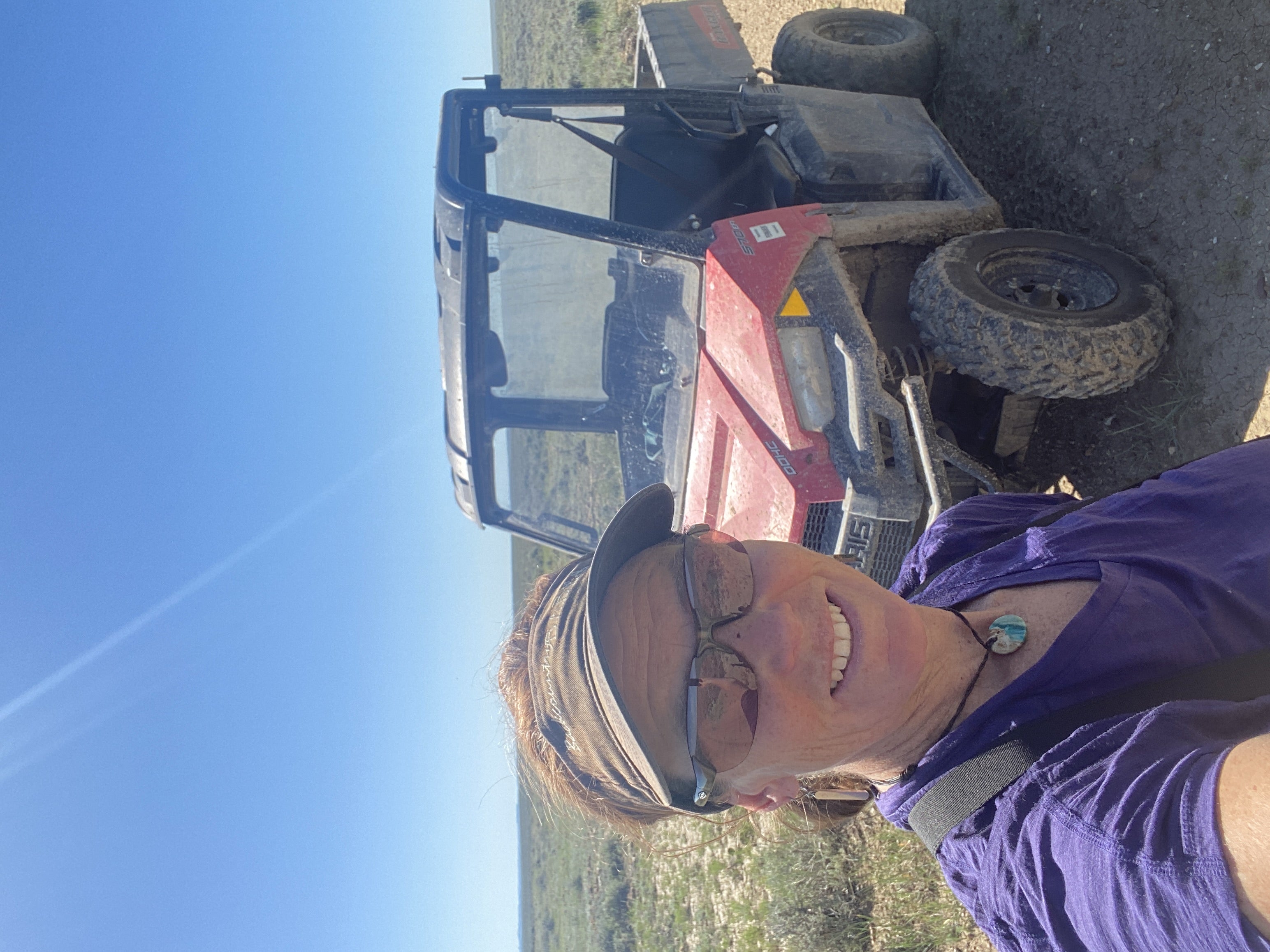
The NGP is a region spanning over 180 million acres, 5 states and 2 Canadian provinces and is currently 1 of only 4 remaining intact temperate grasslands in the world.
Yet, there is concern that this landscape will continue to be lost to economic resource alteration and degradation.
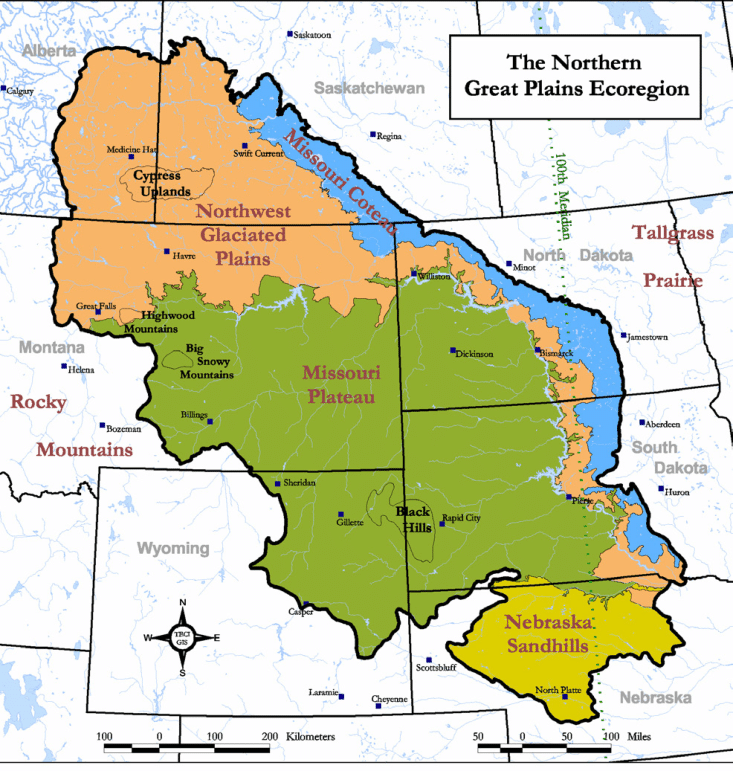
As these tallgrass, mixed grass, and shortgrass prairies are lost, so are the wildlife that depend on them.
Not surprisingly, grassland bird species are currently among the most imperiled group of birds in the U.S., and continue to show steep declines in population numbers.
Private ranchlands currently safeguard 75% of these grasslands.
Thus, the community of ranchers across the NGP hold the key to the viability of habitat that houses species like Sharp-tailed Grouse, Greater Prairie-Chickens, Burrowing Owls, Sprague’s Pipits, Thick-billed Longspurs, Bobolinks, and a plethora of other prairie birds, shorebirds and waterfowl. But these ranchers live on small economic margins and face continuous challenges from not only an increasingly complex environment of climate change, but also from current incentivized agricultural policies and technologies that promote conversion of grassland to cropland and other developments.
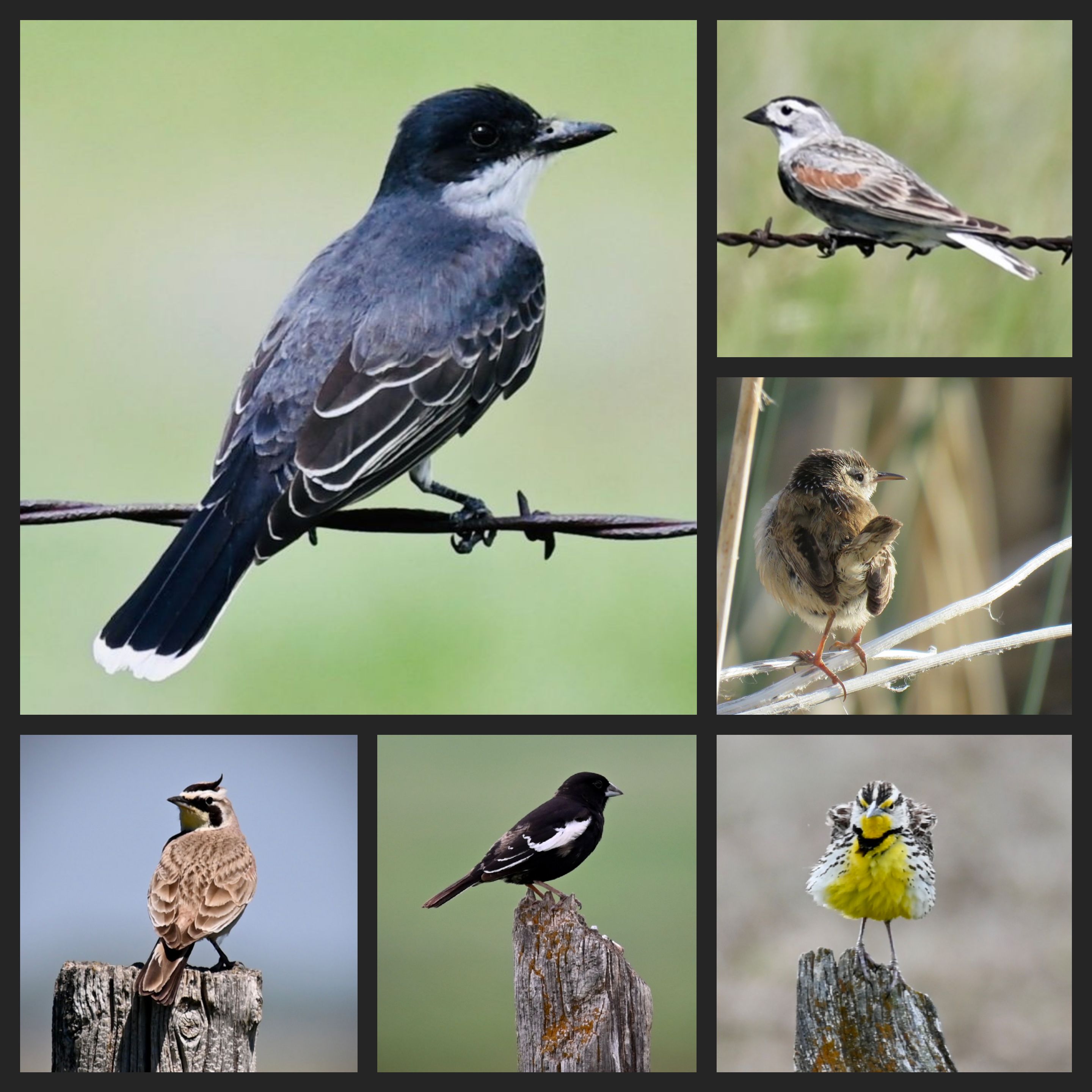
In response, the World Wildlife Fund (WWF) started the Sustainable Ranching Initiative (SRI) in 2021, to work with ranchers to help conserve the abundance, health, and viability of the NGP.
This project focuses on working with ranchers to support their livelihoods while helping them with resources to manage ranchlands in a way that supports healthy grasslands, soils, and bird species conservation in the NGP.
Intermountain Bird Observatory (IBO) has been in partnership with WWF since 2021, conducting bird surveys on ranches involved in the SRI. In 2022, IBO conducted land bird surveys on 38 ranches across Montana, South Dakota, Nebraska, and Wyoming that had enrolled in WWF’s Ranching Systems and Viability Planning.
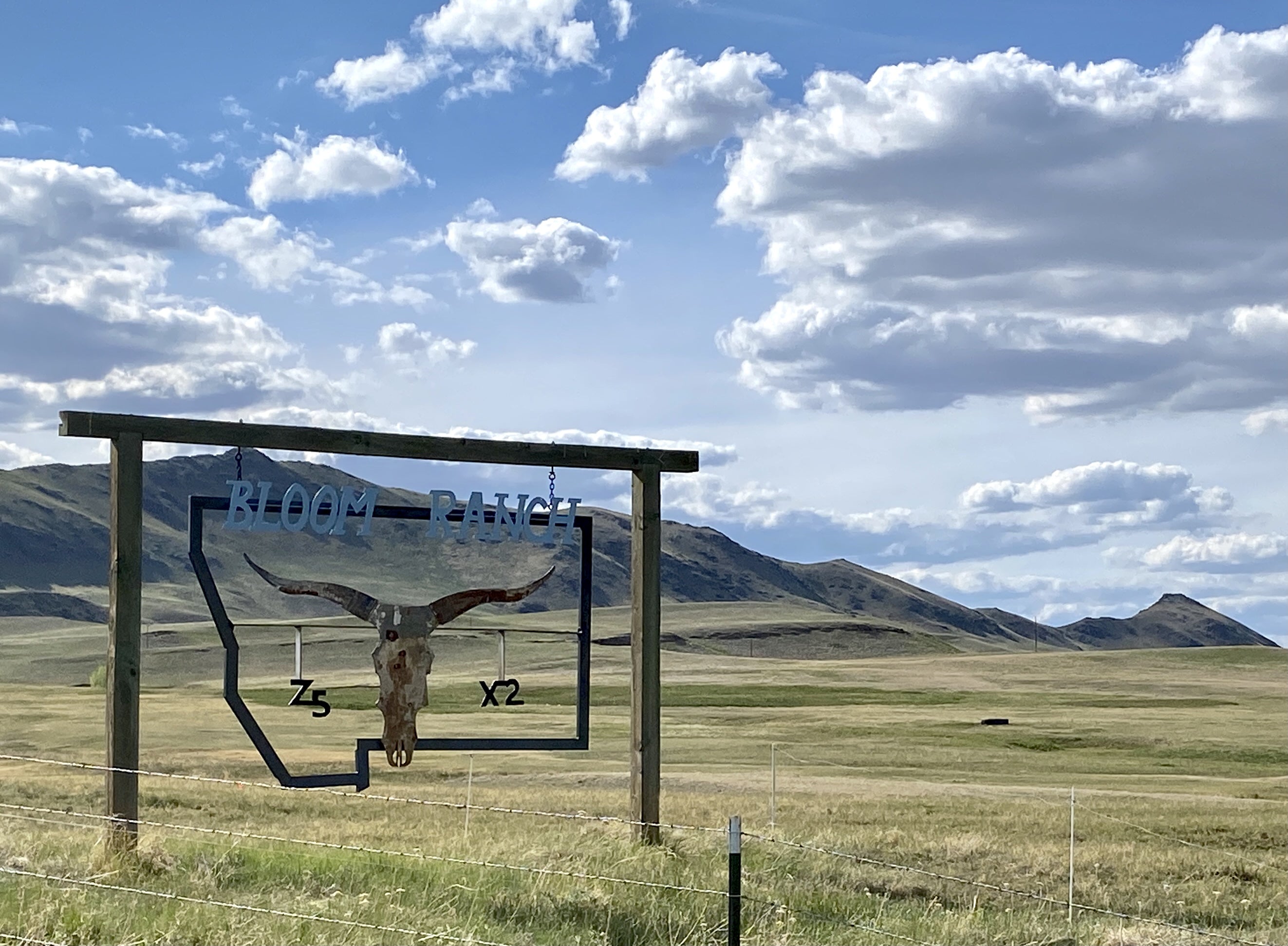
The goal of ranchers willing to take the leap to more holistic, sustainable ranching practices is best-worded by a young and inspiring 4th-generation cattlewoman enrolled in the program in South Dakota. As Kate Rasmussen’s grandfather shared with her at a young age, “take care of the little things, Kate, and the big things will take care of themselves”. Kate understands, even in her 20s, that taking care of things like the soils, insects, and birds are what support the grasslands that take care of people. She shares more of her thoughts in depth here in this video available with transcript.
As Kate is devoted to carrying forward her family ranch, she quotes the words of many of these ranchers…
“Although it feels daunting, I want to run a successful cattle business while taking care of the land.”
Kate Rasmussen
Well-managed grazing helps maintain the health of grasslands, improves soil quality, and preserves open space and wildlife habitat. Grassland vegetation and soils sequester carbon from the atmosphere, and free-range beef provides an important food source for the nation, sustains economic livelihoods, and maintains community vibrancy in rural areas.
It was inspiring to meet so many ranchers committed to running livestock, but with an all-inclusive perspective.
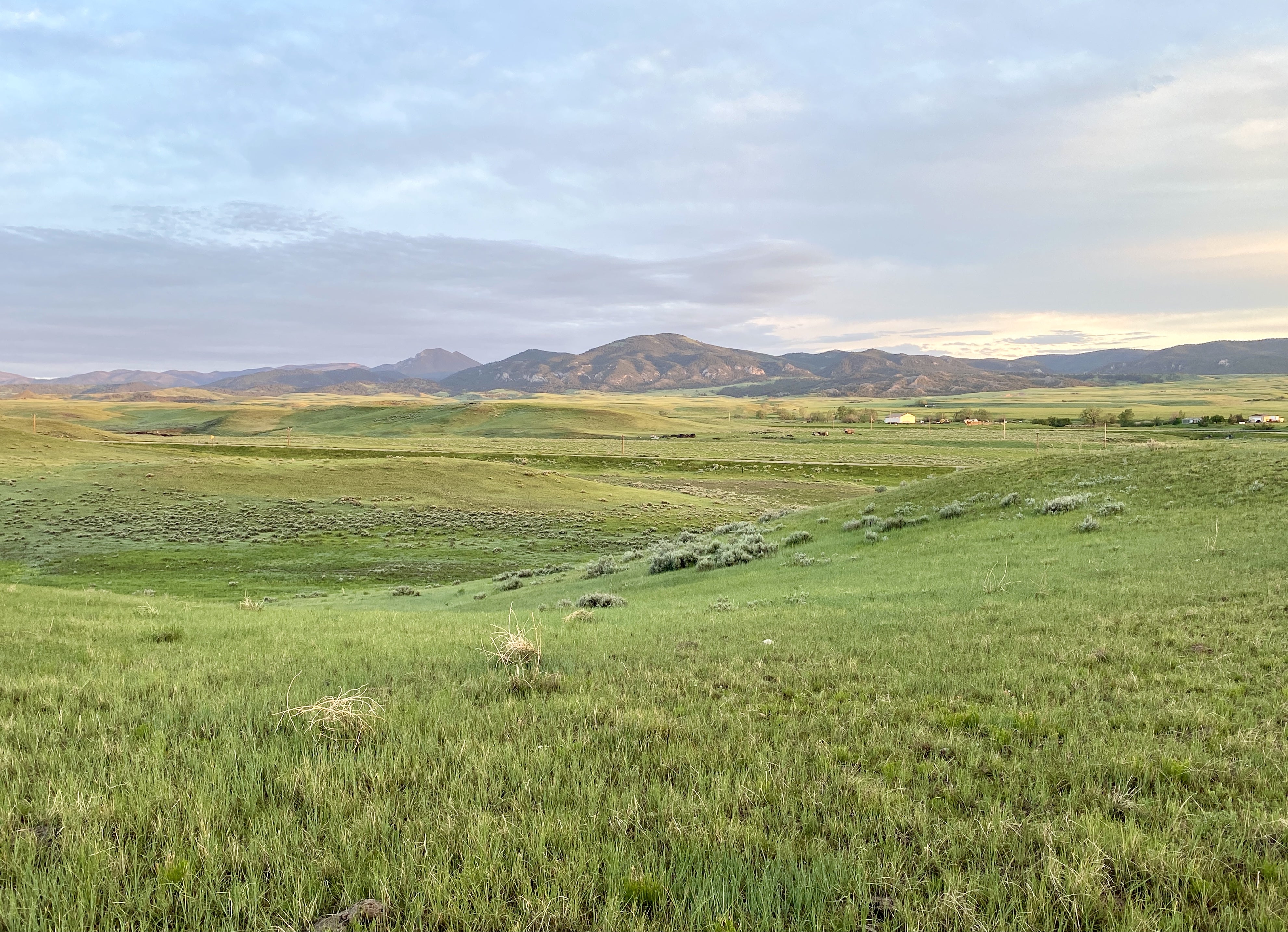
It is a difficult balance for them, but they understand the importance of it for their own sustainability, and the longevity of our nations’ grassland ecoservices.
We forge a new path toward conservation of grassland birds as we work together–the ranchers stewarding the land to produce beef and bison for food, and the scientists documenting soil quality, vegetation vigor, and bird communities as a tool to evaluate the success of their ongoing management practices.
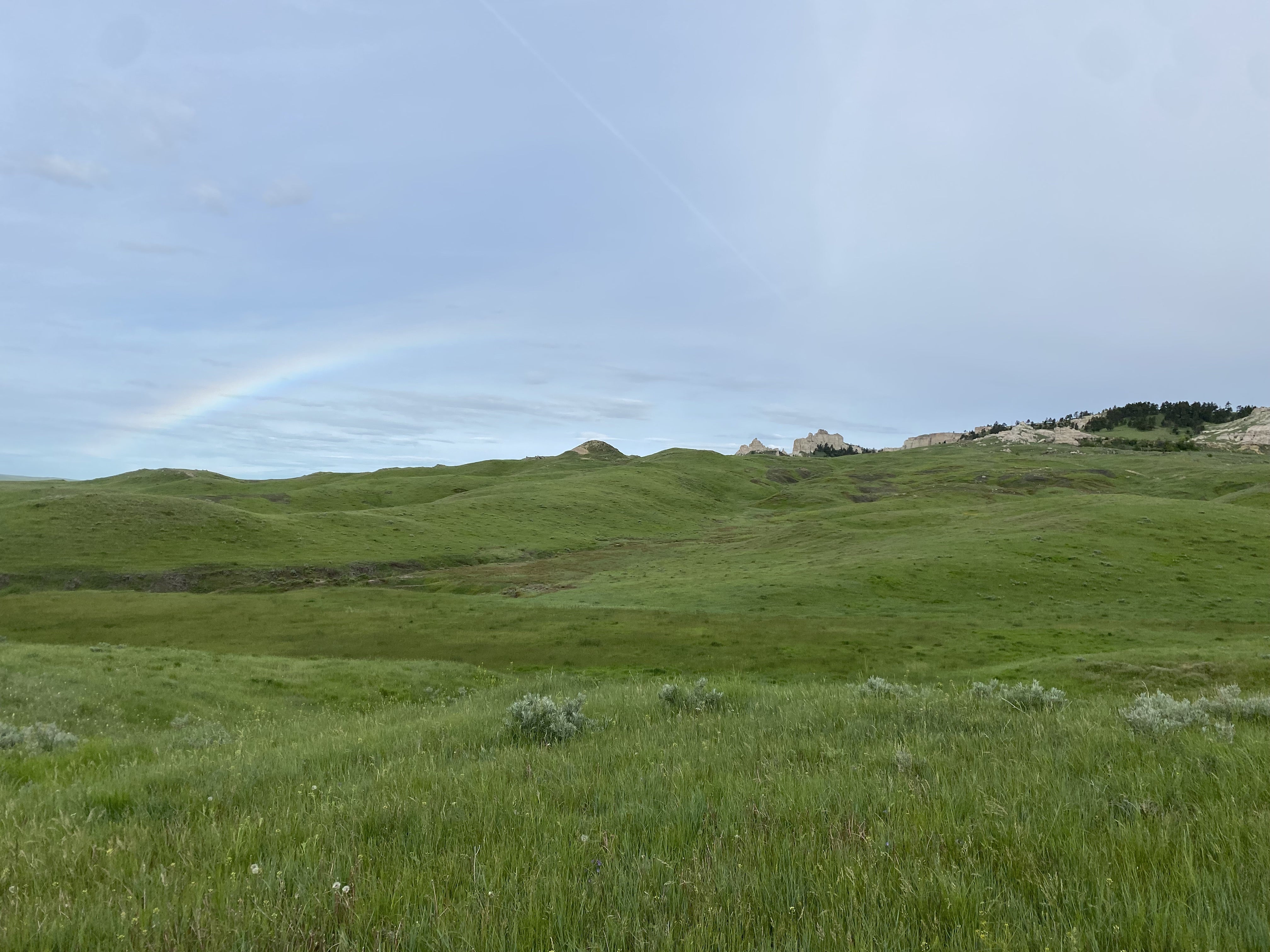
I ended the field season with a new appreciation for the work World Wildlife Fund is trying to accomplish, an appreciation for the ranchers across the Great Plains that want to do something better, and a reconfirmed knowing of the meaning of true rural hospitality! There is value and community in what they are trying to achieve.
Doing this work together is our best answer looking forward to a sustainable future for the land, the birds, and the people.
To learn more about World Wildlife Fund’s Sustainable Ranching Initiative, or to enroll a ranch in the RSVP program, please contact WWF. IBO will be hiring bird survey technicians for the project again in 2023-2024.
This article is part of our 2022 end of the year newsletter! View the full newsletter here, or click “older posts” to read the next article.
Make sure you don’t miss out on IBO news! Sign up to get our email updates.
